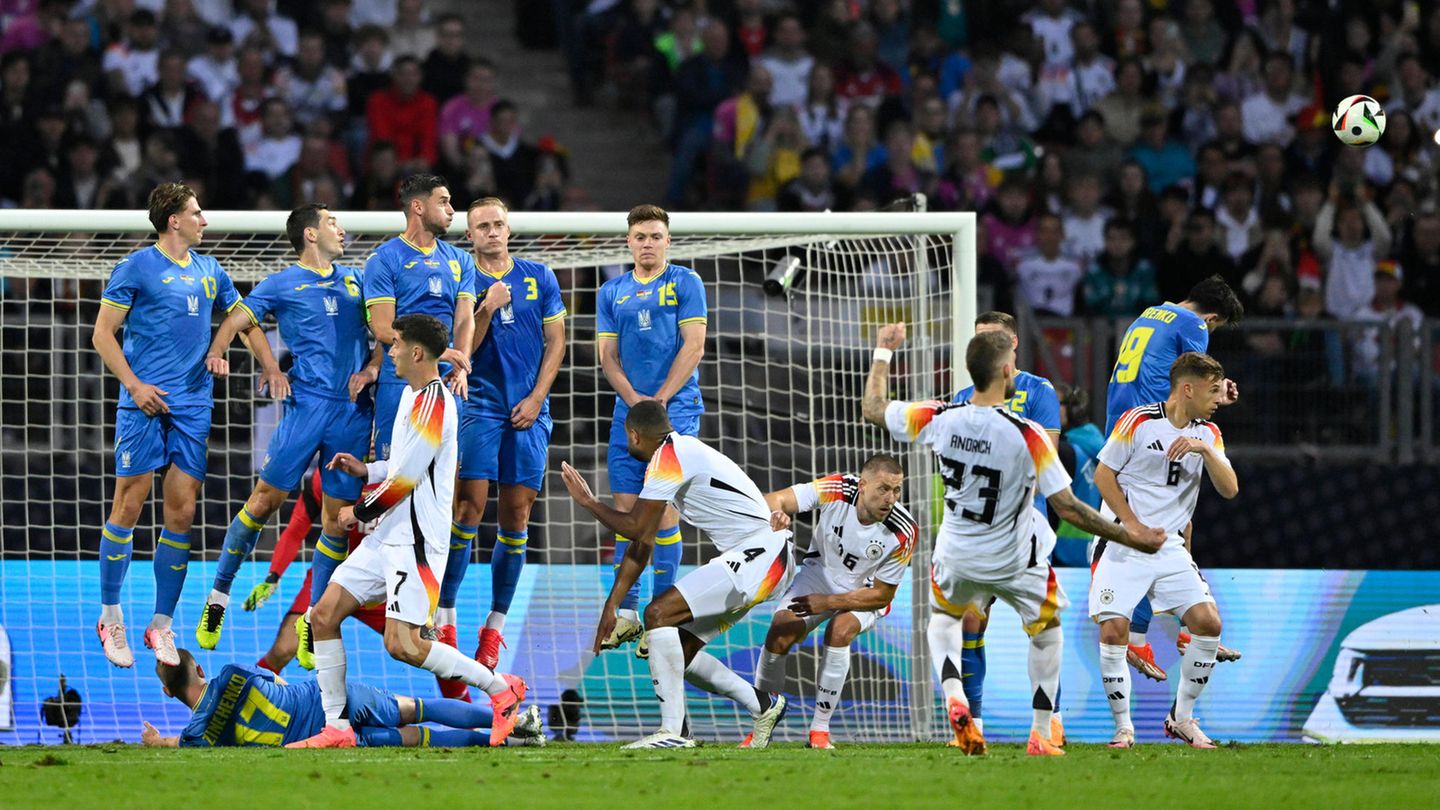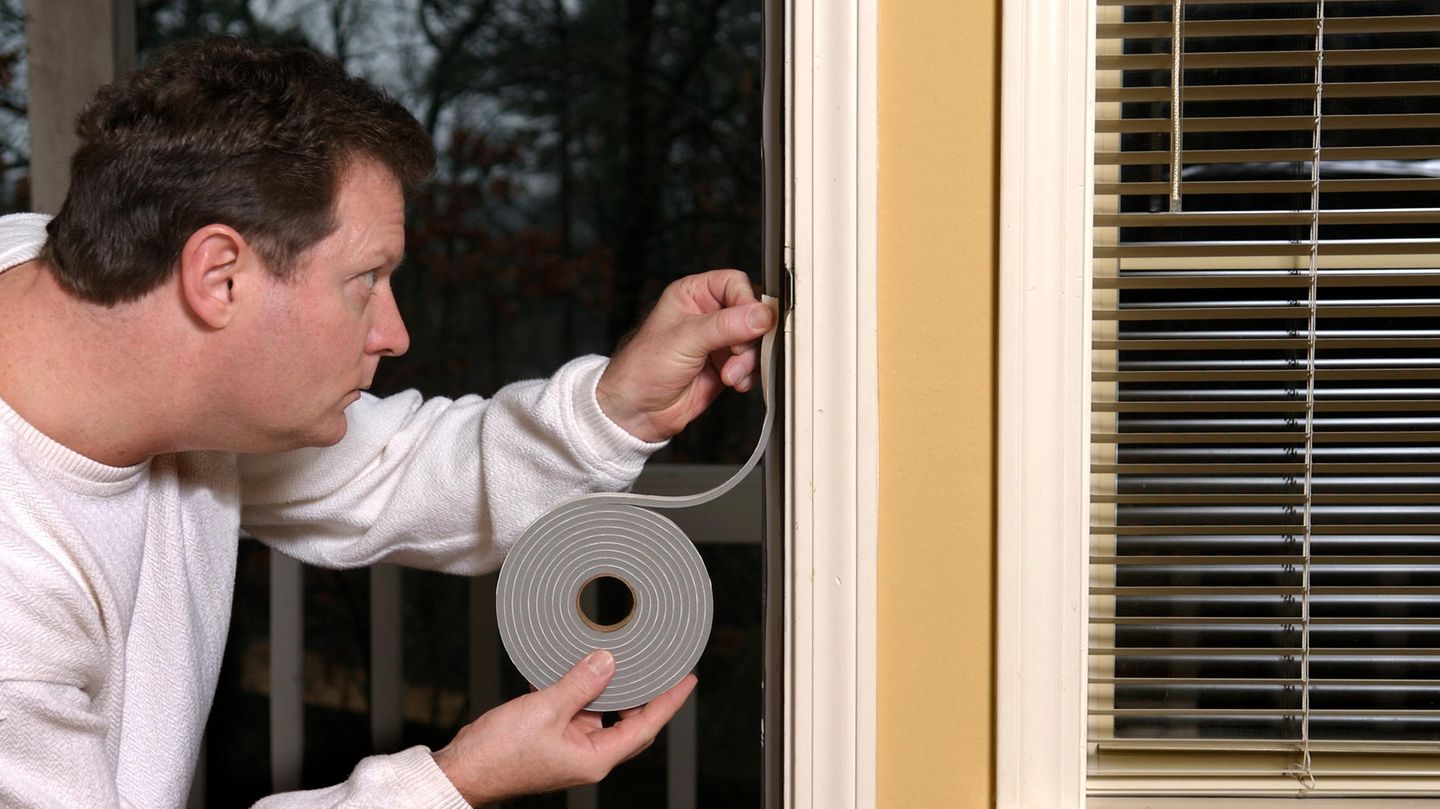On site
… then it turned into a tremendous waste of opportunities. This is only logical for the 100th anniversary of Kafka’s death, which is the setting for the friendly match in Nuremberg. But who is going to score the goals? A few highly talented players are still coming back.
“The disproportion in the world seems, comfortingly, to be only a numerical one,” wrote the Prague insurance clerk Franz Kafka once, and anyone who watched the Germans yesterday, on the 100th anniversary of Kafka’s death, trying with increasing desperation to get at least one damned ball into the goal, almost wanted to nod indulgently.
No, it would definitely not work, but to keep trying anyway – wasn’t that really Kafkaesque? A run against the mystery of the undertaking, against the feeling that an injustice was being done to you, but without knowing the reasons for it in detail. Kafka was, as far as we know, not a football fan. He would have enjoyed this friendly match against Ukraine.
27:6 shots, but all in the oven
The DFB team ended up with an impressive 27 shots, but unfortunately only five of them were on goal and none were in the goal. They had headed, poked and passed, they had tried from a distance and from very close. Later that night, the national coach, who also seemed a little tired, said at the press conference, which appropriately took place in an old gymnasium: He wanted to see a team that wanted to win, that was the most important thing for him. And that he had seen them. He could just as well have said: “In order for the possible to come about, the impossible must be tried again and again.”
Of course, everyone understood what Julian Nagelsmann meant. Sometimes in football, the will is more important than the result and the performance is more important than a win. In a friendly match, for example, eleven days before the European Championship. But at the European Championship itself, you will need a team that not only wants to win, but also wins. Otherwise, it could be very difficult to get far.
Kroos, Sané and Füllkrug will help
How can the Germans become such a team in the remaining preparations and perhaps on Friday against Greece? Perhaps with other players, with new players. With every missed opportunity and every unfinished combination, the impression was created that those who would join the team would perhaps do better, even better: Kroos and Rüdiger, freshly crowned Champions League winners. And also Füllkrug and Schlotterbeck, who are at least destined for the final. And not least Leroy Sané, who served his red card suspension against Ukraine. The presence of the absent players was encouraging, perhaps it rounded off the evening. Because it left room for longing for what could be possible in terms of playing when the squad was all together.
The test against Ukraine should also be an inventory of expectations: Can we trust this team to do what it believes it can do? In any case, the game was not as bad as it was made out to be.
And even more wrong was the verdict of the all too merciless commentators that the DFB team had unfortunately failed to spark tournament euphoria. Were these executioners actually in the stadium? Did they even see how the crowd celebrated and cheered until the very end? You can tell that this country is determined to celebrate a second summer fairytale. And where necessary, they use brute force. For example, when a huge banner covering the entire sideline is rolled out before kick-off, saying: WITH THE HEART IN THE HAND AND PASSION IN THE LEGS… Neither of these things could be denied to Gündogan, Wirtz and Havertz, Andrich, Tah and Kimmich.
Test match of nostalgia: Almost like in the Löw years
The fine feet played an almost pathological short passing game, they hardly ever gave the ball away. And they almost seemed insulted when they lost it. This was particularly impressive after just under twenty minutes, when the Ukrainians’ merciless counter-pressing right up to the baseline resulted in a three-way recapture. The first Mexican waves had long since rolled around the wide stadium and the Chancellor was booed in the united Söderland as if he were Robert Habeck.
National coach Nagelsmann
These players are in the provisional European Championship squad
Possession football as a mood booster, nice to watch. The Max-Morlock Stadium in Nuremberg is already a temple of nostalgia, with its mighty tartan track, floodlight masts and old windows covered in memories. In view of the tikitaka-like passing sequences, one was almost reminded of performances in the not-quite-late Löw years, for example at the 2016 European Championships, when similar performances had led to the semi-finals.
Would the football nation be satisfied with such a result in a few weeks?
It is said that none of the national team players read Kafka anyway.
Source: Stern
I am Pierce Boyd, a driven and ambitious professional working in the news industry. I have been writing for 24 Hours Worlds for over five years, specializing in sports section coverage. During my tenure at the publication, I have built an impressive portfolio of articles that has earned me a reputation as an experienced journalist and content creator.




